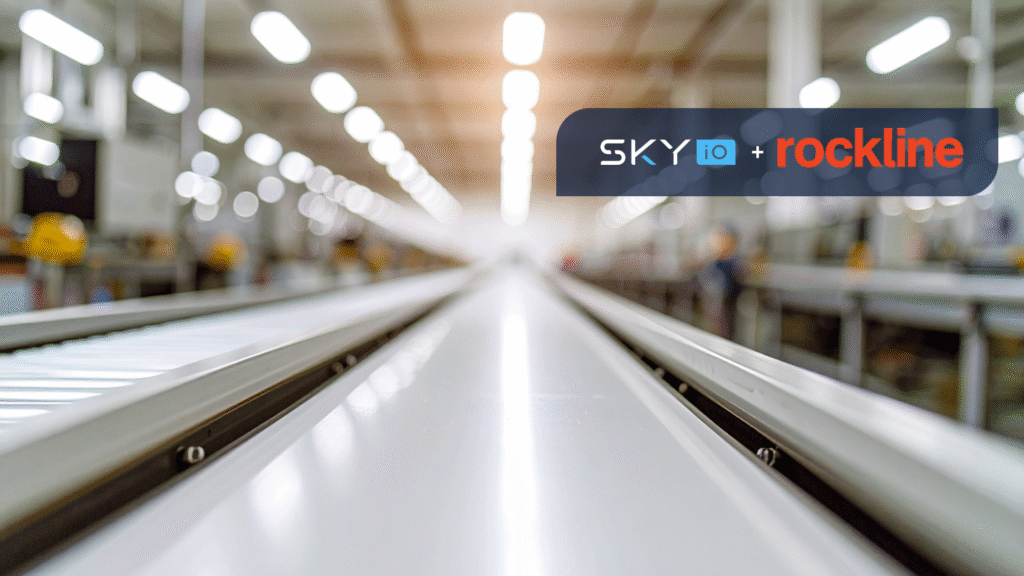- 5 min read
The manufacturing industry has undergone a seismic shift, with digital transformation no longer being optional but essential for long-term competitiveness. However, IT leaders still face significant challenges when implementing smart manufacturing—aligning technology initiatives with business goals, driving workforce adoption, ensuring security and justifying ROI.
The keys to success? IT/OT convergence, automation and manufacturing analytics. These innovations break down traditional silos, optimize operational efficiency and deliver tangible business benefits. Let’s take a look at the ways manufacturers can harness the power of digital transformation to drive measurable results.
Aligning IT Strategy with Business Goals
How IT/OT Convergence Ensures Seamless Operations
Information technology and operational technology have traditionally functioned in separate spheres, leading to inefficiencies and data silos. IT/OT convergence enables real-time data sharing, enhances decision-making and optimizes production workflows, ensuring manufacturing operations are more agile, resilient and data-driven.
Using Automation to Enhance Efficiency, Sustainability and Profitability
From predictive maintenance to AI-powered quality control, automation reduces downtime, minimizes waste and enhances production accuracy. By integrating smart automation, manufacturers improve sustainability while maintaining a strong bottom line.
Overcoming Workforce Resistance to Digital Transformation
The Importance of User-Friendly Solutions and Training
One of the biggest barriers to digital transformation is employee reluctance. Intuitive solutions with user-friendly interfaces, coupled with comprehensive training programs, help ease the transition and encourage workforce adoption.
Strategies for Fostering a Culture of Innovation
For digital transformation to succeed, companies must cultivate a mindset of continuous learning and innovation. Encouraging collaboration between IT and operations, highlighting success stories, and demonstrating how technology enhances—not replaces—human expertise can help shift perspectives.
Making the Business Case for Digital Transformation
Measuring Success: Cost Savings, Productivity Gains and Risk Reduction
IT leaders must demonstrate clear, measurable benefits to justify the return on their digital transformation investment and secure executive buy-in. Key metrics include:
- Cost reduction through process automation and efficiency gains.
- Productivity improvements driven by real-time data insights.
- Risk mitigation by enhancing security and predictive maintenance.
Building Stakeholder Confidence with Data-Driven Insights
Stakeholders respond to data. Business intelligence tools provide real-time analytics and reporting, empowering IT leaders to present compelling evidence of digital transformation’s impact on operational success.
Ensuring Security in Digital Manufacturing
Addressing Cybersecurity Concerns with Robust IT/OT Security Frameworks
As manufacturing becomes more connected, cybersecurity risks rise. Implementing multi-layered security frameworks that include encryption, network segmentation and endpoint protection is crucial for safeguarding operations.
Best Practices for Protecting Critical Infrastructure
Manufacturers should adopt zero-trust architectures, continuous monitoring, and compliance-driven security protocols to defend against cyber threats and ensure business continuity.
The Future of Smart Manufacturing
Shaping the Next Evolution of IT in Manufacturing
Emerging trends such as AI-driven predictive analytics, edge computing and digital twins will continue transforming the industry, allowing manufacturers to anticipate disruptions and optimize processes in real time.
How Businesses Can Stay Ahead of the Curve with Continuous Innovation
To remain competitive, manufacturers must adopt a proactive approach to digital transformation and smart manufacturing, continuously evaluating and integrating new technologies that align with evolving business needs.
The future of manufacturing belongs to those who embrace IT/OT convergence, automation and manufacturing analytics. By integrating scalable and adaptable digital transformation strategies now, manufacturers can drive efficiency, security and profitability while continuing to grow and prosper.
- Digital Transformation





